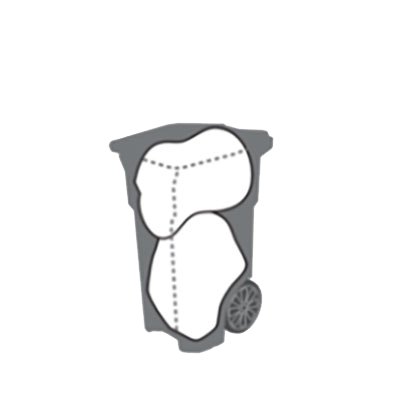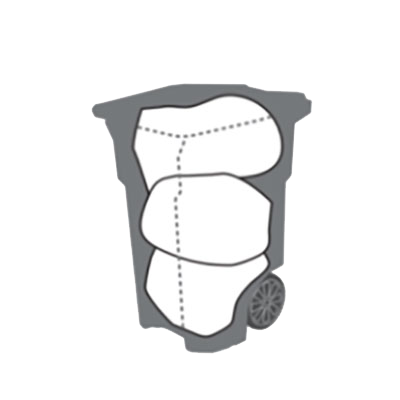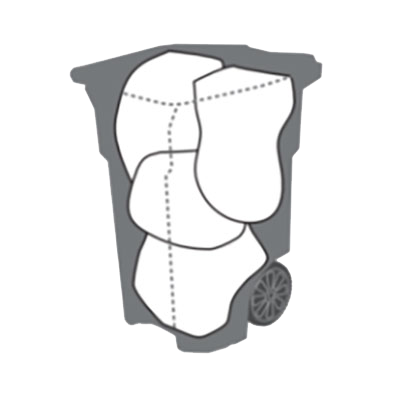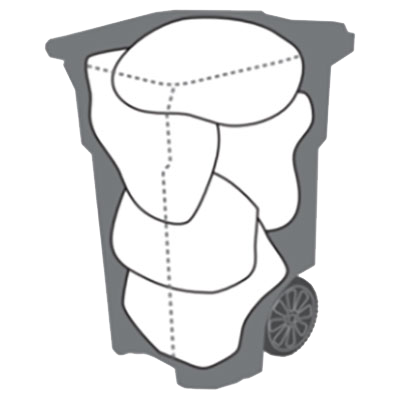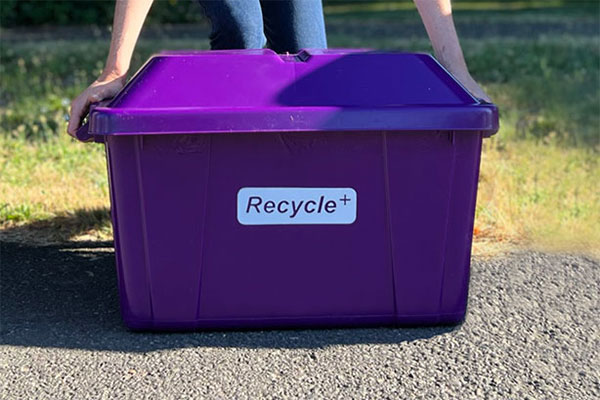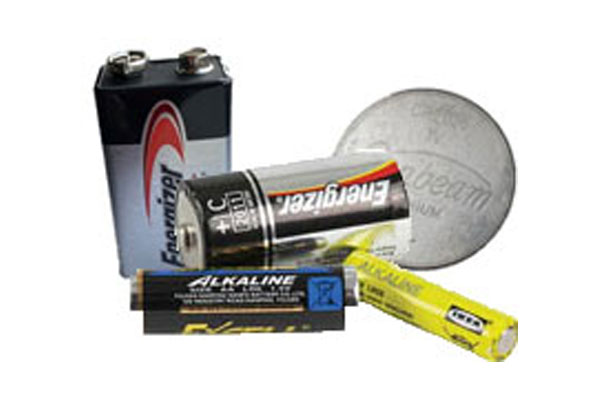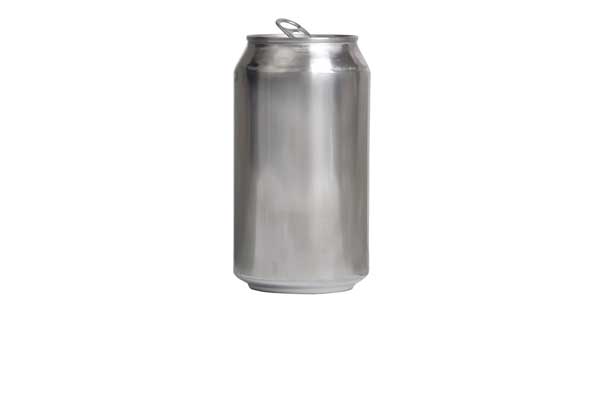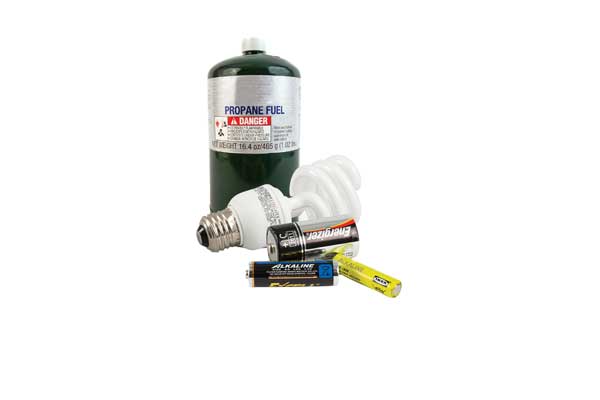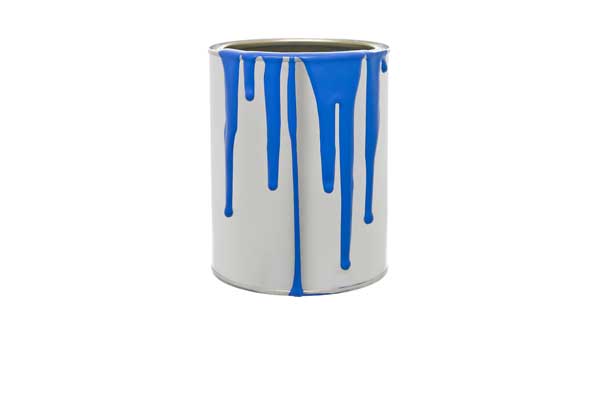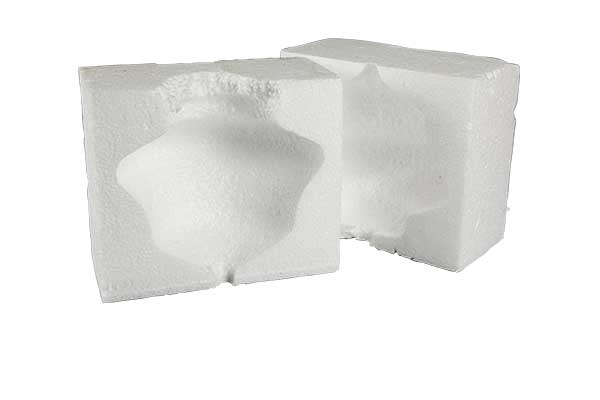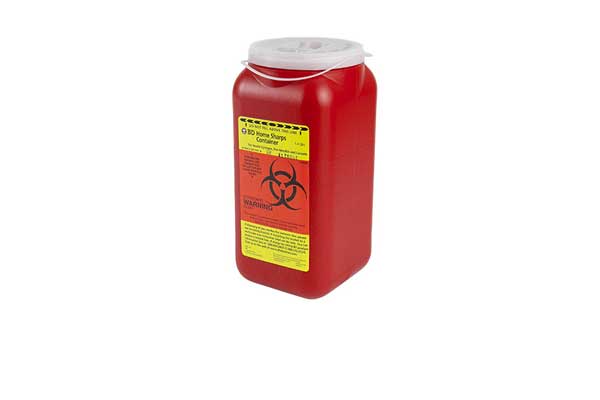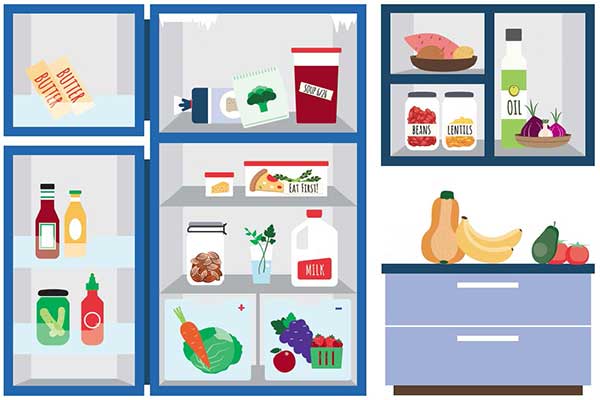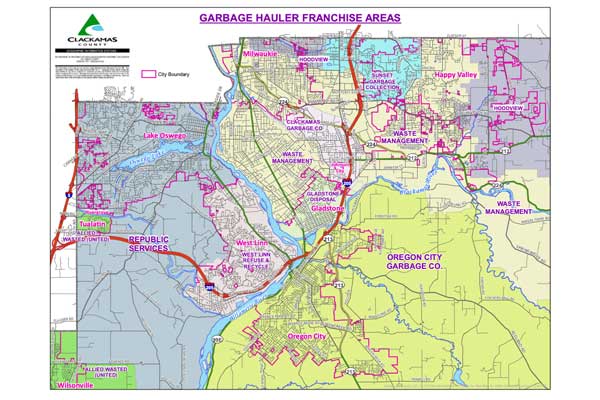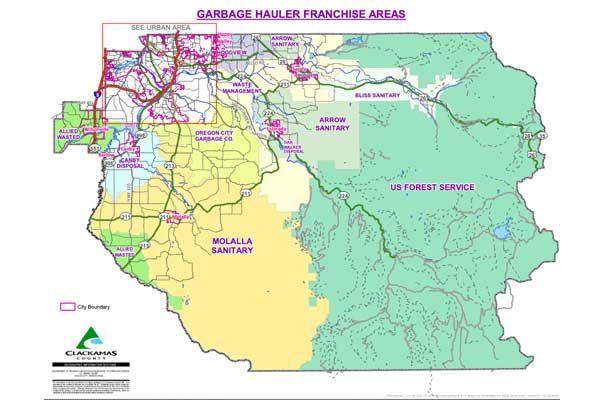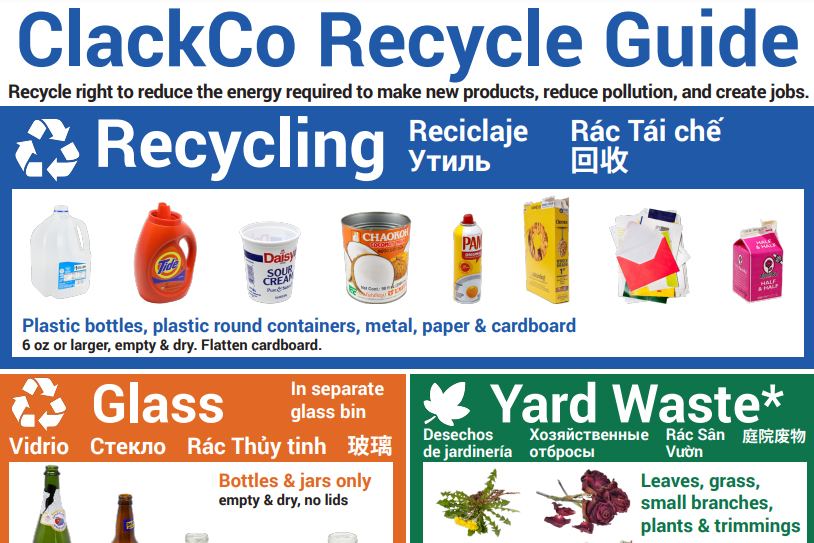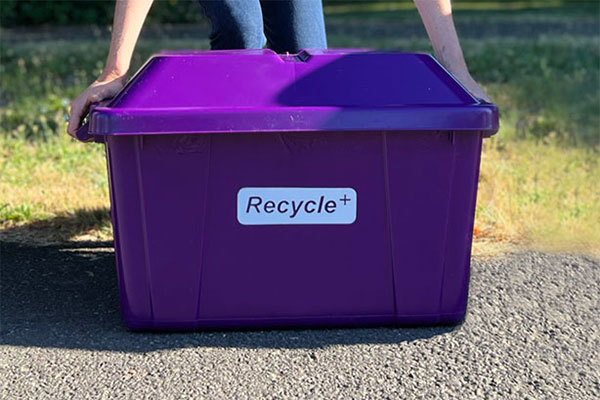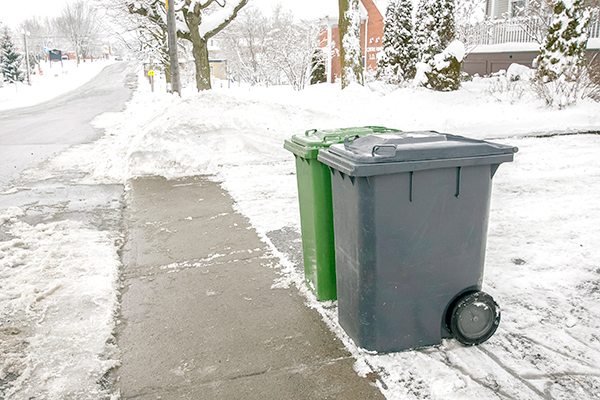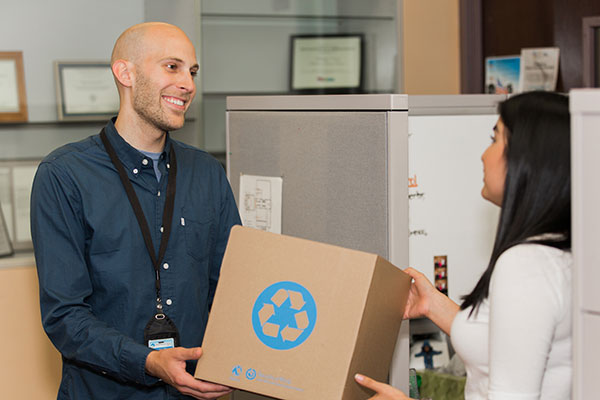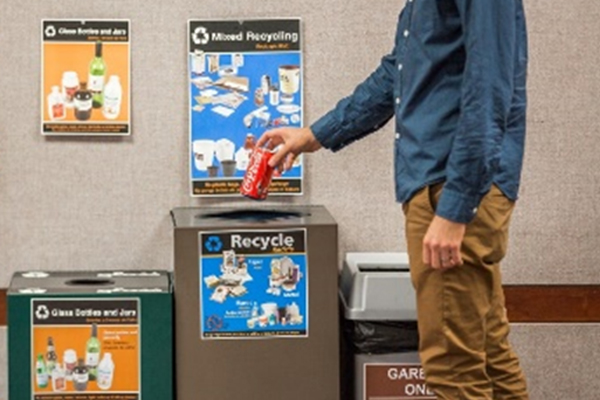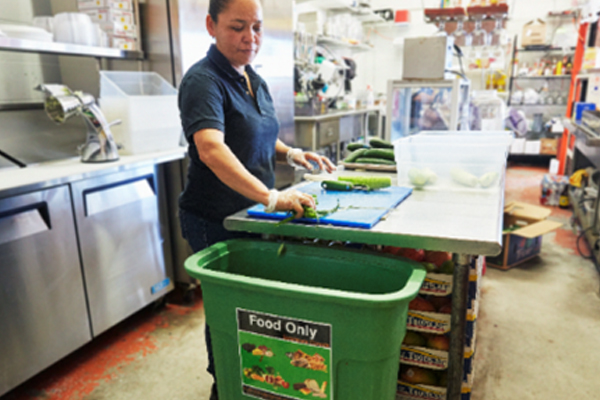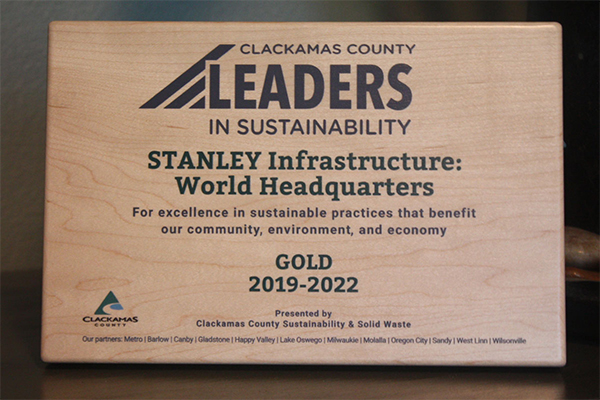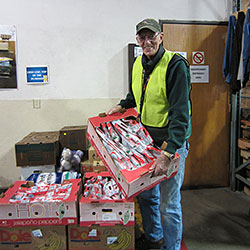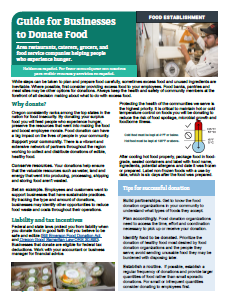For additional information, email us at lis@clackamas.us or call 503-742-4458 to speak with a Sustainability Advisor.
Technical assistance
How do I request technical assistance and training for our business?
Call 503-742-4458 to speak with a Sustainability Advisor. Technical assistance and training is available at no charge.
Acceptable items
What items can go into the compost bin?
Only three items may go into the compost bin other than food -- tea bags, coffee filters with grounds, and BPI-certified compostable bags (if you choose to line your containers). That’s it.
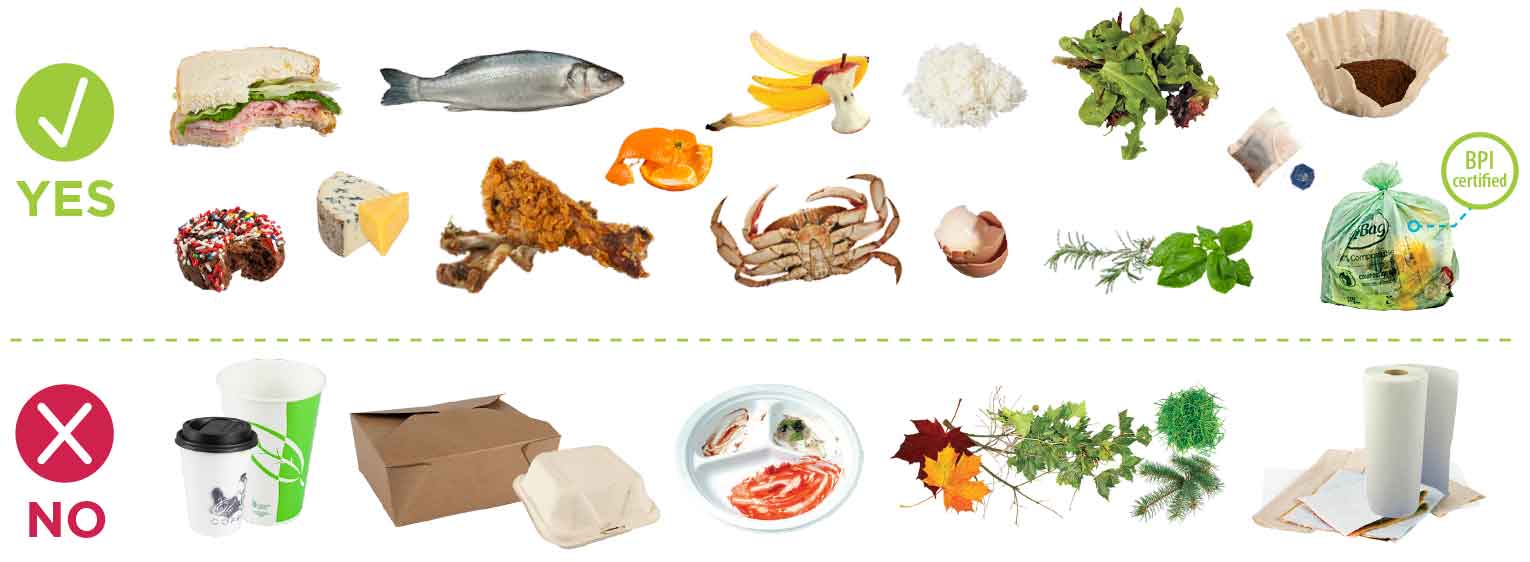
Allowed
- All food scraps!
- Tea bags and coffee filters with grounds
- BPI-certified compostable bags
Not allowed
- Paper towels, napkins and any other food-soiled paper
- Disposable and compostable to-go service ware
- Plastics, metal, paper and cardboard (waxed or uncoated)
What are the keys to successfully separating food waste?
Make separating food scraps a job for all employees--take participation seriously and take the time to train everyone.
Make it easy for employees to separate food scraps and empty the containers. Our Sustainability Advisors can help you with this.
Recognize or reward employees for participating. Acknowledgements can establish a positive culture for sustainable practices at your workplace.
Bags
Should I use compostable bags?
You are not required to use compostable plastic bags and regular plastic garbage bags are not allowed in the food scraps collection program. If you choose to use compostable bags, they must be BPI-certified compostable plastic bags. These bags are available through your supplies vendor or we have set up discounted pricing arrangements with a few vendors.
Pros of using a BPI-certified compostable plastic bag
- Simple to use
- Cleaner collection bins
- No increased labor cost
Cons of using a BPI-certified compostable plastic bag
- Additional cost
- Potentially limited shelf life
- Can split and break easily
If you choose not to use a BPI-certified bag, we recommend you create standard operating procedures to clean indoor and outdoor collection bins to help prevent odor and pest problems.*
Pros of not using a bag
- Less waste
- Avoid costly bag purchase
Cons of not using a bag
- Need to regularly clean bins
- Staff training
- Potential for increased labor
Odors
What can I do to reduce odor problems?
To minimize odors, keep your outside bin in a shaded area with lids firmly closed. Empty indoor collection containers throughout the day, and rinse or wash them regularly.
Since food scraps are already present in your garbage, there is already the potential for odor problems. You are simply separating them for collection and a beneficial use.
Bins
How do I keep collection bins clean?
Create a cleaning schedule for indoor and outdoor containers, and clean them with hot water and a small amount of oxygen-based bleach alternative, white vinegar or soap. Dispose of rinse water through the sanitary sewer system, not the storm drains. Smaller collection containers (e.g., buckets) can be run through your dishwasher.
Your garbage hauler can swap out your outdoor collection bins annually for free by request, or more often for a fee. Contact your hauler for pricing.
Cost
How much will this program cost?
The answer depends on how much waste you generate and your current garbage service. A Sustainability Advisor can offer free consultation to help you implement a food scraps collection program while minimizing costs.
We can also provide your business with free staff training, indoor collection containers, supporting signs and decals. Email us at lis@clackamas.us or call 503-742-4458.
Are there ways to reduce collection costs?
Track the volume of garbage and food scraps in your outside bins to “right size” your collection service. The appropriate pickup frequency and size of container can lead to cost savings. Our Sustainability Advisors can help you with this assessment. Email us at lis@clackamas.us or call 503-742-4458.
 Translate
Translate






